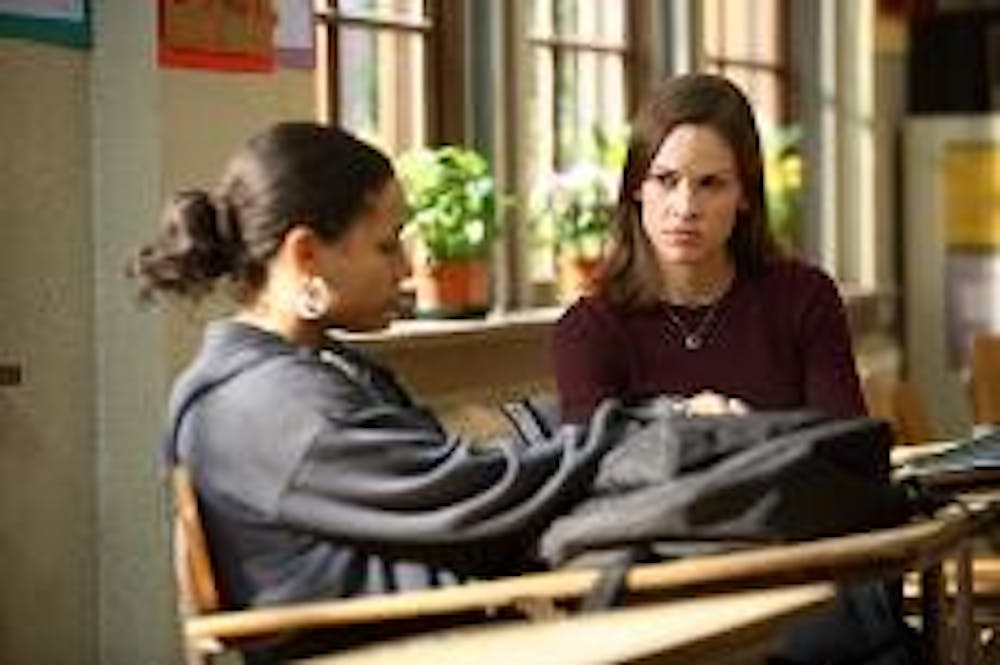"Freedom Writers" doesn't just begin. Instead, as the fiery chaos of the Rodney King riots tears across the screen, the film explodes to a powerful start. Indeed, the movie's forceful beginning sets the tone for what becomes an overwhelmingly inspirational film.
Like an academic "Remember the Titans" or a literary version of "Stand and Deliver," the premise in "Freedom Writers" isn't unique. Based on the true story of a class at an inner-city Los Angeles high school, the narrative follows first-year English teacher Erin Gruwell as she connects her racially divisive classroom through daily journal writing.
Slowly, but surely, Gruwell's passionate teaching guides her students, who once drew racially offensive caricatures of fellow classmates, to an empowered kinship.
However, the recognizable formula that drives "Freedom Writers" doesn't prevent it from being inspirational. Superb acting coaxes what could be a cheesy movie into a startling and believable film.
Pretty-faced tough girl Hilary Swank masterfully plays the pearl-wearing English teacher who develops a spine. At times, it is tough to believe that her appearance can always remain so perfect in the face of so much adversity.
Despite working two jobs to buy her students' books, facing her righteous co-workers, and encouraging her mistrusting students, not a strand of hair is ever out of place. However, it is her inability to ever get flustered that makes her character so remarkable. In her perfectly pressed red suit, Swank convincingly embodies the unexpected heroism of the young teacher.
April L. Hernandez is especially compelling as Eva Maria, one of Gruwell's most vocal students who must choose between boot camp and school. Hernandez's acting captures Eva Maria's many facets. She is a hardened gang member raised on violence and yet, as her angry veneer begins to crumble, it is evident that she is also a desperate and helpless young woman.
Other forceful performances come from Patrick Dempsey as Scott Casey, Gruwell's jerk of a husband, who urges her to focus on her family (i.e. him) and not her students. Gruwell's other students are convincing, as they act out with unflinching honesty the horrors they confess in their journals.
While the story of the L.A. Freedom Writers alone would craft an inspirational film, purposeful cinematography helps make the movie even more convincing.
In one especially powerful scene, Gruwell has her students stand on a line facing each other if they agree with her statements. When she asks those students who have lost a friend to gang violence to step forward, almost all of the class inches towards the line. Standing shoulder to shoulder, struggling to look each other in the eye, the members of rival gangs begin to break down as they say aloud the names of friends lost. The common toll, as even the most proud students begin to cry, is uncomfortably palpable.
"Freedom Writers" succeeds because the heartbreaking realness of the story translates onto film. The film's force haunts viewers long after the film's close. It acts as necessary inspiration for all that can be done.





